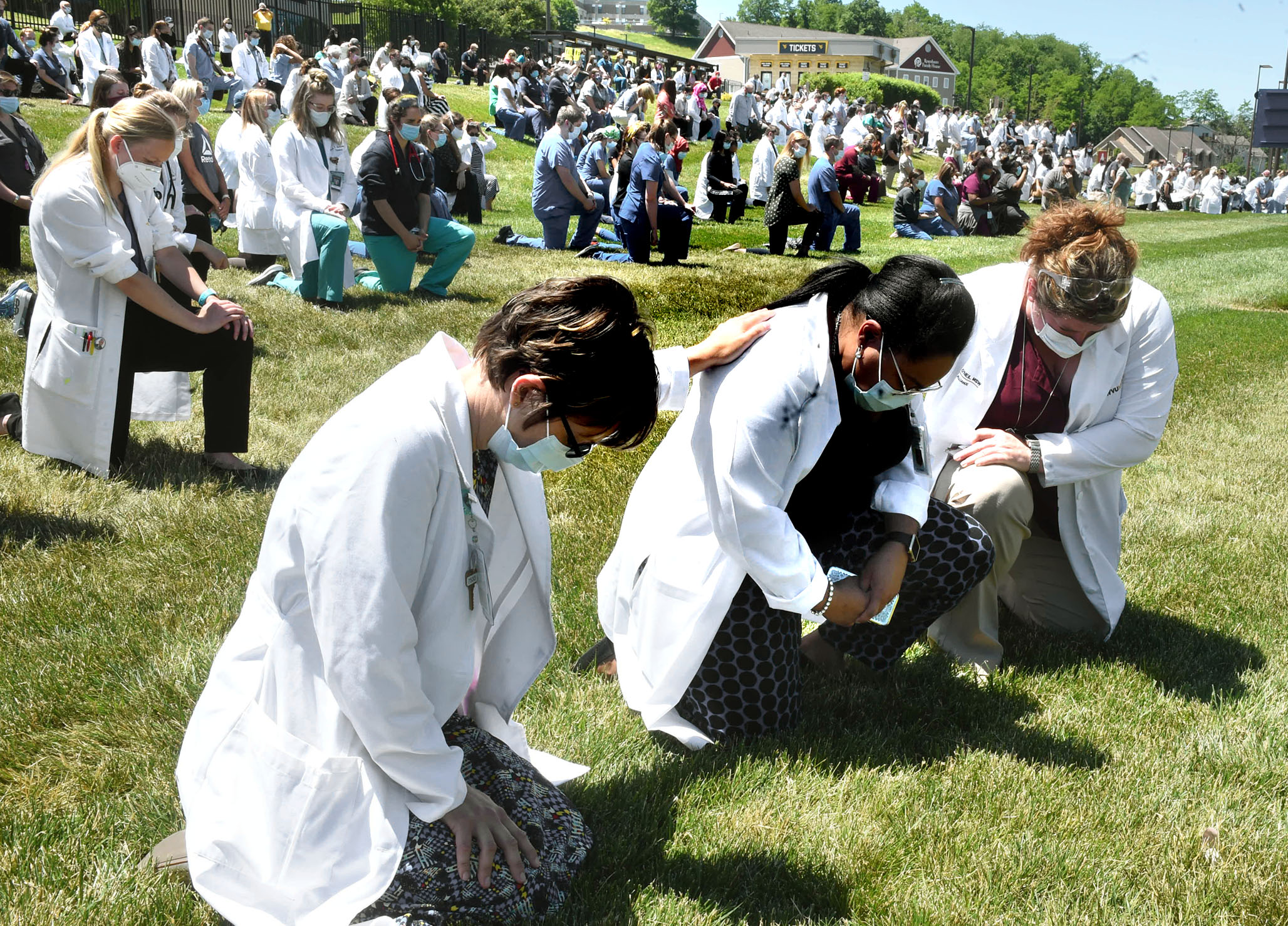On a beautiful Monday lunchtime afternoon, a diverse group of 200 or so WVU Medicine health care providers came together on the front lawn of Milan Puskar Stadium to protest racial injustice and the killing of George Floyd by a white Minneapolis police officer.
The event, called White Coats for Black Lives, was put together by Jennifer Knight Davis, a WVU Medicine trauma and critical care surgeon who describes herself as an advocate for people who are risk.
“I take care of people,” she said. “This kind of event gives health care personnel the power to advocate for others.”
Participants were on the lawn roughly 20 minutes before the noon protest. Attendees included physicians in white coats, medical students, nurses and non-medical people, many of whom carried signs that said “Imagine If Nurses Ignored I Can’t Breathe,” “BLM,” “Black Lives Mean Fixing Health Inequality too,” and “Stop Making Excuses for Racism.”
“There is a movement in academic medical centers for this kind of protest,” she said. “It has gotten a lot of support.”
“We live in uncertain times,” added Cody Mullens, a third-year medical student who helped Knight Davis organize the protest, one of a handful peaceful demonstrations the Morgantown community has held in recent days to protest Floyd’s May 25 death and racial injustice, particularly in law enforcement.
Protesters Monday kneeled on the front lawn of the stadium for 8 minutes and 46 seconds, the time it took for Floyd to die after telling the white police officer he could not breathe. That officer, Derek Chauvin, has since been charged with third-degree murder and second-degree manslaughter.
Led by Knight Davis, protesters walked a loop around J.W. Ruby Memorial Hospital and others returned to work.
White Coats for Black Lives is a national medical student-run organization with the goal of using medicine and health care as a way to counteract racism. It was started as part of the National White Coat Die-In demonstrations than took place December 2014.











